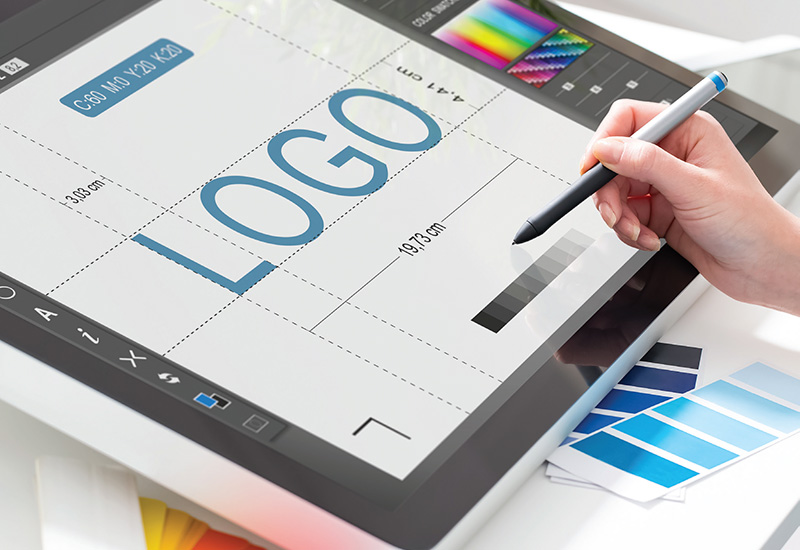
A PolyU research has revealed that the shapes of logos can have powerful impact on consumers’ perceptions of companies and their products.
Companies put a lot of thought into logo design, trying to capture the essence of who they are and what they are selling. Yet little is generally known about how logo shape influences the ways in which products and companies are perceived. Logo designers learn that circular shapes are feminine, comforting and sensual, whereas squares and rectangles are seen as orderly, rational and masculine. Yet there is no substantial guidance on how logos might trigger such imagery in consumers.
A research group led by Prof. Gerald Gorn, Chair Professor of Marketing and Dr Jiang Yu-wei, Associate Professor at the Department of Management and Marketing recently set out to better understand that situation. They conducted a series of experiments featuring logos with circular and angular designs, based on the premise that these “activate softness and hardness associations, respectively”.
The experiments elicited reactions to a range of logos for various products and services, showing that consumers do indeed link circular logos to ‘soft’ mental images and angular logos to ‘hard’ images. The researchers explained that “consumers spontaneously generate product- or company-related imagery when processing the information” in a logo design, and then they use these shapeactivated associations to generate mental imagery about the product or service.
For instance, in one experiment, logo shape influenced how comfortable or durable a pair of shoes was thought to be. Consumers were shown a mock advertisement of generic sneakers. When the fake logo of a brand was circular with mainly curved lines, they assumed the shoes of that brand were more comfortable. On the other hand, when the logo was angular with straight lines and sharp corners, consumers assumed that the shoes were more durable.
Other experiments showed that the generation of such mental imagery can be blocked by competing visual imagery, and that the shape effect is less significant when consumers are less likely to generate imagery while processing product information. A final experiment showed that perceptions of product attributes were less affected by logo shape when a logo was presented together with an ad headline that focused on different product attributes.
As the researchers put it, when considered in isolation, “the mere circularity/angularity of a logo is powerful enough to influence the inferences that consumers draw about products and the attitudes they have toward them”. This is not only important for furthering our understanding of consumer imagery and visual marketing, but also has implications for the study of working memory.
The findings of this study were published in the Journal of Consumer Research. ♦


